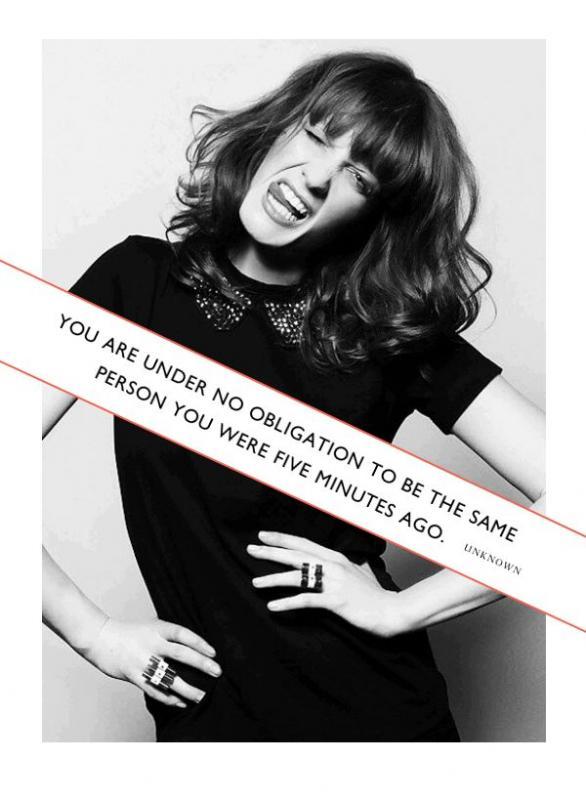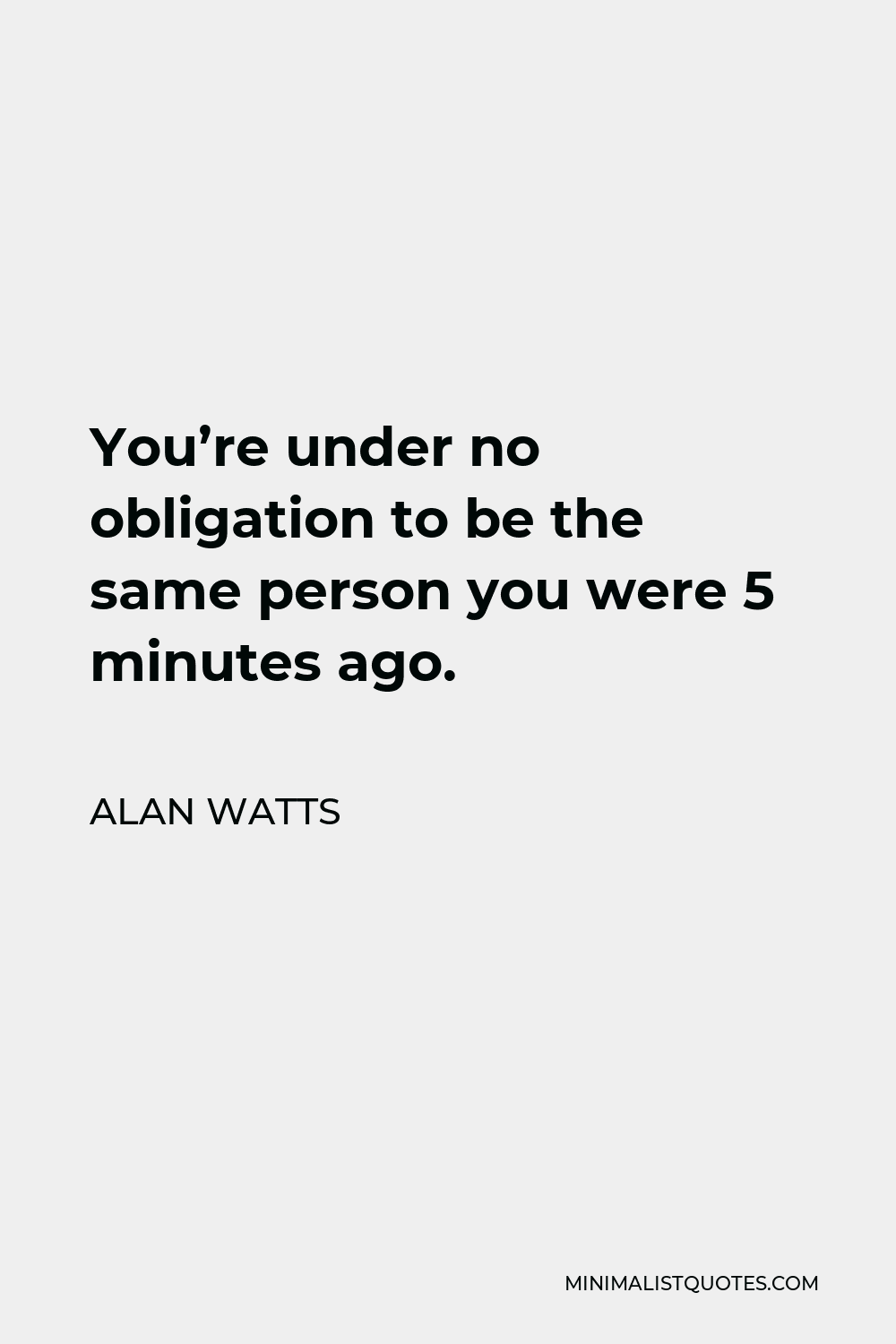You Are Under No Obligation To Be The Same Person

The scent of lavender hung in the air, a calming aroma that did little to soothe the swirling thoughts in Sarah’s mind. Sunlight streamed through the window, illuminating dust motes dancing in the air, each one a tiny reflection of the countless possibilities that stretched before her. She stared at the half-finished canvas, a vibrant landscape that felt miles away from the monochrome life she'd been living.
At its core, the idea is refreshingly simple: You are under no obligation to be the same person you were yesterday, last year, or even a decade ago. This isn't about denying your past, but rather embracing the potential for growth, change, and self-discovery that lies within each of us. It's a message of hope and empowerment that resonates deeply in a world often obsessed with consistency and rigid identities.
Sarah’s journey exemplifies this transformative power. For years, she was defined by her career as a corporate lawyer, a role she excelled at but never truly loved.
The long hours, the cutthroat competition, and the relentless pressure had slowly eroded her spirit, leaving her feeling empty and unfulfilled.
But beneath the polished exterior of a successful lawyer lay a passionate artist yearning to break free.
The Seeds of Change
The turning point came during a seemingly ordinary vacation. While visiting a small coastal town, Sarah stumbled upon an art gallery showcasing the work of local artists.
She was captivated by the vibrant colors, the raw emotion, and the sheer joy that radiated from each painting.
It sparked something within her, a dormant desire she hadn't allowed herself to acknowledge for years.
That night, Sarah couldn't sleep. Images of brushstrokes and canvases filled her mind.
She realized she had a choice: to continue down the path she was on, or to embrace the artist within.
It was a terrifying prospect, filled with uncertainty and the fear of failure.
But the thought of spending her life chasing someone else's dreams was even more frightening.
Rejecting Societal Expectations
Our society often pressures us to conform to certain expectations, to follow predetermined paths, and to maintain a consistent image. We are told that changing direction is a sign of weakness or instability.
According to a study by the Pew Research Center, many adults feel a significant amount of pressure to meet societal expectations related to career, family, and financial success.
This pressure can lead individuals to suppress their true desires and passions, resulting in a life of quiet desperation. Dr. Emily Carter, a clinical psychologist specializing in career transitions, emphasizes the importance of challenging these societal norms.
"It's crucial to remember that your worth is not defined by your job title or your bank account," she says. "True fulfillment comes from aligning your life with your values and pursuing what brings you joy. You have the right to change your mind, to explore new possibilities, and to redefine yourself as many times as you need to."
This sentiment is echoed by Brené Brown, a renowned researcher and author who has spent years studying vulnerability and shame. In her book, Daring Greatly, Brown writes about the importance of embracing imperfection and rejecting the myth of "having it all together."
She argues that vulnerability is not a weakness, but rather a strength that allows us to connect with others and live more authentically.
Embracing the Unknown
Sarah's decision to leave her law firm was met with mixed reactions. Some friends and family members were supportive, while others were skeptical, questioning her sanity.
They worried about her financial security and her ability to succeed in such a competitive field.
But Sarah remained steadfast in her resolve.
She enrolled in art classes, spent hours practicing her technique, and immersed herself in the world of art.
It wasn't easy. There were moments of doubt, frustration, and even despair. But with each brushstroke, she felt a sense of purpose and fulfillment that had been missing from her life for so long.
Her first exhibition was a nerve-wracking experience. She poured her heart and soul into each painting, hoping that her work would resonate with others.
To her surprise and delight, the exhibition was a success. People were drawn to her unique style, her vibrant use of color, and the emotional depth of her paintings.
She sold several pieces and received positive feedback from critics and fellow artists.
Sarah's story is not unique. Many people have successfully navigated significant life changes, from career transitions to personal transformations.
Forbes has featured numerous articles on individuals who have reinvented themselves later in life, proving that it's never too late to pursue your passions.
Practical Steps for Transformation
While the idea of reinventing yourself can be inspiring, it can also feel overwhelming. Here are some practical steps to help you navigate the process:
1. Self-Reflection: Take the time to understand your values, your passions, and your strengths. What truly matters to you? What activities make you feel alive and energized? What are you naturally good at?
2. Exploration: Experiment with new hobbies, take classes, attend workshops, and volunteer your time. Don't be afraid to step outside of your comfort zone and try something completely different.
3. Networking: Connect with people who are already doing what you aspire to do. Attend industry events, join online communities, and reach out to mentors for guidance and support.
4. Skill Development: Identify the skills you need to succeed in your new endeavor and invest in developing those skills. This may involve taking courses, attending workshops, or seeking out on-the-job training.
5. Gradual Transition: You don't have to make a drastic change overnight. Start by incorporating your new passion into your existing life gradually. This could involve working on your passion project in your free time or taking on a part-time job in your desired field.
A Life Reimagined
Sarah's life is now unrecognizable from the one she lived as a corporate lawyer. She spends her days painting, teaching art classes, and exhibiting her work in galleries around the country.
She has found a sense of purpose and fulfillment that she never thought possible.
Her story is a testament to the power of self-discovery and the courage to embrace change.
More importantly, she understands that this new identity isn't fixed.
It's a fluid, evolving part of her existence, subject to growth and change, and that's perfectly okay.
As Sarah often says, "Life is too short to live someone else's dream. You have the right to create your own masterpiece."
And you are under no obligation to be the same person.


















